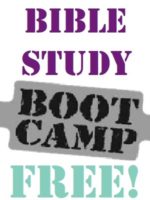
The question of how to choose the right version of the Bible has been discussed in a previous blog. In the blog, I conclude that “no one size fits all when it comes to Bible study [and the right way to choose a suitable version is to] do your research, go to the bookstore and sit down with a few versions of the Bible and read.” Although that piece of advice is useful for those starting their journey to comprehend the Word of God, many others—who have traveled some spiritual distance—will find my counsel insufficient. This blog is for them.
The Bible has been translated into more than 500 languages. On BibleGateway.com, there are more than 50 English versions available. Some of the translations are more than 400 years old —King James Version — while others are modern. Amid such a variety, it is natural that there will be some differences. Consider this version from 1 Peter 1:1.
American Standard Version:
“Peter, an apostle of Jesus Christ, to the elect who are sojourners of the Dispersion in Pontus, Galatia, Cappadocia, Asia, and Bithynia,”
Hebrew Names Version:
“Kefa, an apostle of Yeshua the Messiah, to the chosen ones who are living as aliens in the Diaspora in Pontus, Galatia, Cappadocia, Asia, and Bithynia,”
New International Reader’s Version:
“I, Peter, am writing this letter. I am an apostle of Jesus Christ. I am sending this letter to you, God’s chosen people. You are strangers in the world. You are scattered all over Pontus, Galatia, Cappadocia, Asia and Bithynia.”
In these three versions, the chosen people are referred to by three different titles: “the chosen ones,” “strangers in the world” and “sojourners of the Dispersion.” In other versions, which are not cited here, “exiles” and “temporary residents” have also been used. Which of them is the correct translation? The only way to find out is to read the Bible in its original language — Hebrew and Greek. Many find great insight by doing so.
It is said that Martin Luther would not have been able to shake the Western World if he had not studied the original Biblical languages and found “mistakes” in the Rome’s doctrine. If one monk—equipped with a knowledge of the God’s word as it was delivered—could become so influential in Medieval Europe, imagine the impact that you will be able to make in the 21st century. Your personal study will be rich and your teaching will become transformational.
Start your journey on the God’s path today by studying His Word, the Bible, as it was written. If you have never studied the Bible before, you can use the Inductive Study Method. It is beginner-friendly but extremely powerful. Then, you can move on to word studies and finally full-fledged study of the two Biblical languages to connect with God.









Comments are closed, but trackbacks and pingbacks are open.